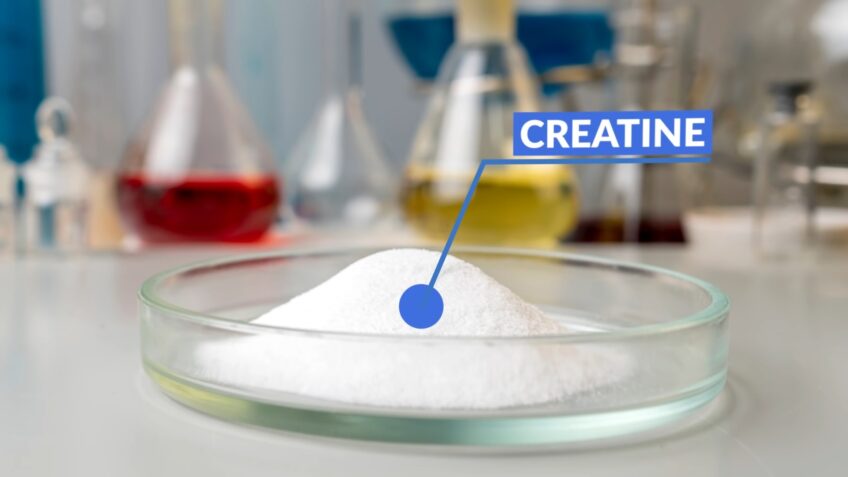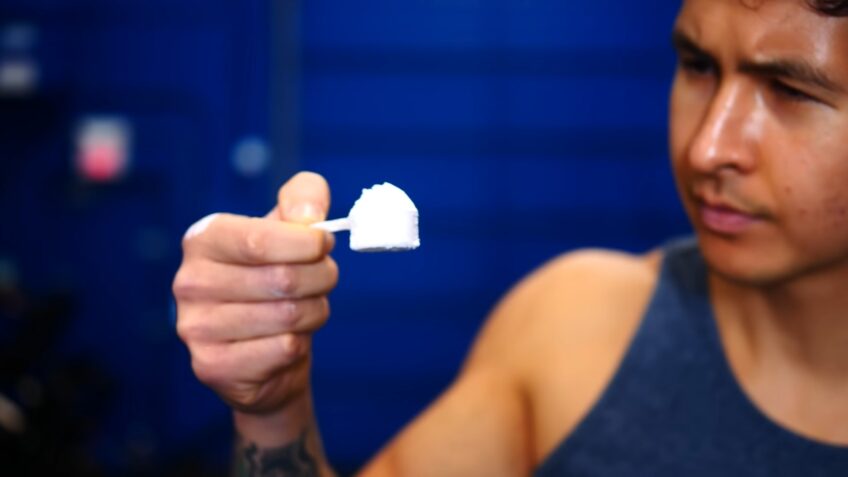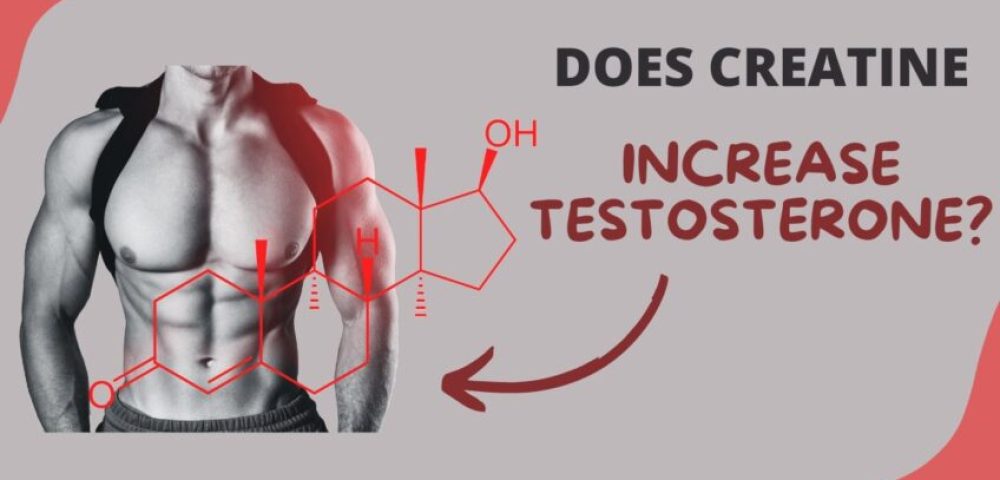It is in the nature of human beings to want to get better at something, to be more capable, and to feel good about themselves. There are many things in life that we technically do because we want to improve and grow.
From education as the main way to learn new skills and equip our mind for the world, to physical activity and training in order to literally be stronger, to be a human means to adapt, overcome, and grow in more ways than one. However, it is also common to feel less capable than what is perceived as ideal particularly as we age.
One of the problems that all humans must face is the fact that we get less capable, weaker, and more dependent with age. However, this can be put on hold or at least slowed by adopting a certain lifestyle. For men, the problems tend to come with a weaker drive, both physical and sexual, which can cause all sorts of reactions.
There are certain ways to get back on top, and not just in old age. With supplementation, it is possible to do more and longer. Creatine is one of the most popular and well-known compounds of this kind and in this article we talk about its effects, particularly those on testosterone levels.
Page Contents
What is Creatine?

Creatine is a naturally occurring compound found in muscle tissues that plays an essential role in the energy metabolism of the body. It is synthesized from amino acids including glycine, methionine, and arginine. Creatine is primarily stored in the muscles as phosphocreatine.
Right off the bat, it can be seen how important it is in fitness and exercise, which is why supplementation is so dependent on it. Phosphocreatine provides a readily available source of energy for muscle contractions during high-intensity exercise.
When muscles contract, they use adenosine triphosphate (ATP) as an energy source. However, the body can only store a limited amount of ATP and it is quickly depleted during intense exercise. Since a lot of exercise needs to be intense for the results to show, there is a need for more.
This is where phosphocreatine comes in as it can quickly replenish ATP levels allowing our muscles to contract for longer periods before fatigue starts setting in.
Given its role in energy metabolism, creatine is a very popular supplement among athletes and bodybuilders who want to increase their muscle mass, strength, and endurance. Creatine supplementation has been shown to increase muscle creatine stores and improve performance during short but intense exercise. Examples of these include weightlifting, sprinting, and jumping. It can also increase muscle protein synthesis and help build and repair muscle tissue.
Creatine as a Supplement

In addition to these important performance-enhancing effects, creatine also has potential health benefits. Some research suggests that creatine supplementation could improve cognitive function, particularly in older adults. It might also have neuroprotective effects and could help people with neurological disorders like Parkinson’s and Huntington’s diseases.
Creatine is available in a variety of forms when supplementation is concerned. It comes in powders, capsules, and energy bars and it is generally considered safe when used in recommended doses. While some people may experience side effects like gastrointestinal upset, muscle cramping, and dehydration, it is widely used without much discomfort.
These supplements help the body by increasing the availability of creatine in the muscles. When one takes it as a supplement, creatine is absorbed into the bloodstream and transported to the muscles where it is stored as phosphocreatine. This quickly converts into ATP during high-intensity exercise and allows for more intensive workouts to take place.
By increasing the amount stored in the muscles, creatine supplements improve the individual’s ability to do more and achieve greater results. This is because the extra phosphocreatine provides a quick source of energy for the muscles that are otherwise impossible, delaying fatigue and allowing more repetitions or faster times. Such supplements also increase muscle mass and strength over time. This is thought to occur through a combination of increased protein synthesis and improved muscle hydration.
Can It Increase Testosterone Levels?

Now that you know more about it and how it works, let us focus on the main topic of the article: can creatine supplementation increase testosterone in males? While it does have a number of benefits for athletic performance and muscle growth, there is limited evidence to suggest that it can increase testosterone levels by a significant degree.
One more thing that can increase your testosterone level is a cold shower. Showering with cold water not only increases your testosterone but it has numerous health benefits with it.
Testosterone is a hormone that plays a crucial role in muscle growth and development, among other things. It is the main male hormone that influences bone strength and sexual drive. While some studies have suggested that creatine supplementation may increase testosterone levels, the evidence is mixed and inconclusive.
One study published found that six weeks of creatine supplementation resulted in a significant increase in testosterone levels in male rugby players. However, other studies have not found similar results and were inconclusive at best. In theory, it should be enough to increase the levels but it is not proven yet.
It is worth noting that any increases in testosterone levels associated with creatine supplementation are likely to be quite small and short-lived. In addition to this, the effects of creatine on testosterone may vary depending on many individual factors of the person taking it like age, form, health, and training status.
While there is some evidence to suggest that creatine supplementation may increase testosterone levels, the evidence is not strong and more concrete research is needed. It is important to use creatine supplements as directed and to speak with a healthcare professional before starting supplementation, especially if you have any medical conditions or are taking medications.
Creatine is not the only supplement that is connected with increasing testosterone levels. While not alternatives to creatine, some supplements, such as D-aspartic acid and ashwagandha, have been suggested to boost testosterone levels.
It is important to watch out for your diet and have a meal plan when taking creatine and other supplements.
However, evidence is mixed and inconclusive as well. D-aspartic acid is an amino acid that increased testosterone levels in several studies, but not in others. Ashwagandha is an herb used in traditional medicine to boost testosterone levels, but the evidence supporting its effectiveness is limited at best.
It is often the lifestyle factors like getting enough sleep, managing stress, and maintaining a healthy diet and exercise routine that play a vital role in supporting healthy testosterone levels. If these are up to a certain standard, creatine should also help a bit.
FAQ
What hormones does creatine increase?
Creatine does not directly affect hormone levels in the body. However, some studies suggest that creatine supplementation may indirectly affect the hormonal profile by increasing testosterone and insulin-like growth factor-1 (IGF-1) levels.
Testosterone is a hormone that plays a critical role in muscle growth and development, and some studies have shown that creatine supplementation may increase testosterone levels in some individuals. However, the evidence is not consistent, and more research is needed to confirm these findings.
IGF-1 is another hormone that is important for muscle growth and development, and some studies suggest that creatine supplementation may increase levels of this hormone. However, more research is needed to confirm these findings and to determine the optimal dosage and duration of creatine supplementation to elicit these effects.
Does it have side effects?
Creatine is generally considered safe for most people when taken in recommended doses. However, some individuals may experience side effects from creatine supplementation. The most commonly reported side effects include:
- Gastrointestinal issues: Some people may experience digestive issues such as stomach pain, nausea, diarrhea, and bloating.
- Muscle cramping: Creatine may increase the risk of muscle cramps, especially when taken in high doses or during intense exercise.
- Dehydration: Creatine supplementation may increase the body’s need for water, so it is essential to drink plenty of fluids when taking creatine.
- Weight gain: It can cause weight gain due to increased water retention in muscles.
- Kidney damage: There have been some reports of kidney damage in individuals who take creatine supplements, especially those with pre-existing kidney problems. However, these cases are rare and usually occur with high doses or prolonged use.
It is important to note that other supplements such as testosterone boosters may have more significant potential side effects. Testosterone boosters are designed to increase testosterone levels in the body and while they may offer some benefits, they may also have potential side effects that should be taken into consideration.
What improves testosterone levels?
There are several ways to naturally improve testosterone levels in the body, including:
- Exercise: Regular physical activity, especially strength training, has been shown to increase testosterone levels.
- Healthy diet: Eating a balanced diet that includes protein, healthy fats, and carbohydrates can help optimize testosterone levels.
- Sleep: Getting enough sleep is crucial for maintaining healthy hormone levels, including testosterone.
- Vitamin D: Studies suggest that vitamin D may play a role in regulating testosterone levels, so ensuring adequate vitamin D intake may help.
- Stress management: Chronic stress can lower testosterone levels, so managing stress through techniques such as meditation, deep breathing, and exercise can help.
- Avoiding excessive alcohol and drug use: Heavy drinking and drug use can lower testosterone levels, so limiting or avoiding these substances can help maintain healthy hormone levels.
- Taking supplements: Some supplements, such as D-aspartic acid, fenugreek, and ashwagandha, have been shown to improve testosterone levels in some studies.
Does creatine increase body size?
Creatine can increase body size in several ways.
Firstly, creatine supplementation can increase muscle size and strength by improving the body’s ability to produce energy during exercise. When you take creatine, it helps your muscles produce more ATP (adenosine triphosphate), which is the main source of energy for muscle contraction. With more ATP available, you may be able to perform more repetitions or use heavier weights during resistance training, leading to increased muscle size over time.
Secondly, creatine can cause water retention in the muscles, which can lead to a temporary increase in body size. This is because creatine draws water into the muscles, making them appear fuller and more voluminous. However, this effect is typically only noticeable in the short term, and any increase in body size due to water retention will disappear once you stop taking creatine.
It’s important to note that creatine is not a magic pill that will automatically increase body size. Rather, it is a supplement that can help support muscle growth and improve athletic performance when combined with a proper exercise program and nutrition plan. If you’re considering taking creatine, it’s always a good idea to consult with a healthcare professional first.
Can I skip creatine on rest days?
This supplementation is typically recommended for individuals who are engaged in regular high-intensity exercises, such as weightlifting or sprinting. On rest days, when you are not engaging in these types of activities, your muscles are not being taxed as heavily and may not require as much creatine to support their energy needs.
That being said, some people choose to take creatine every day, regardless of whether or not they are exercising. This is because creatine has been shown to have other potential benefits beyond muscle growth, such as improved cognitive function and reduced risk of certain neurological diseases.
Conclusion
Testosterone levels can vary widely depending on the person even if all of the factors and lifestyle choices are similar. If you are concerned about your own levels, speak with your doctor for advice on the best course of action before doing anything drastic.
Also Read:
- Does Cold Showers Increase Testosterone? - Yes, But…
- How to Increase Testosterone Level for Beard Growth…
- Does Creatine Make You Gain Weight? - Strategies for…
- How To Stop Stomach Cramps From Laxatives - No More…
- Testofuel vs Prime Male - Increase Your Testosteron Levels
- How to Increase Dopamine to Manage Your ADHD:…















